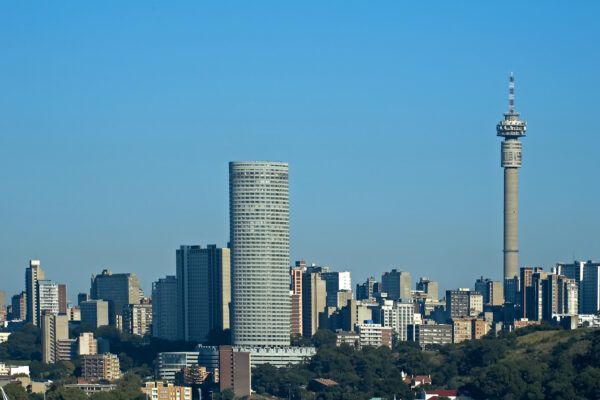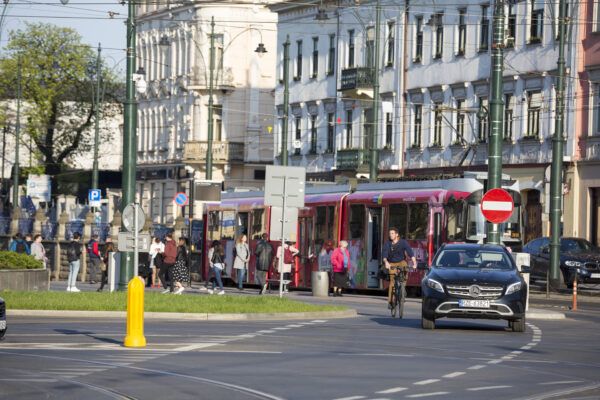Currently, Warsaw’s air quality fails to meet the guidelines set by the World Health Organization (WHO) or the pollution limits established by the European Union. In Poland, discussions about air pollution typically arise during winter when it becomes literally visible, with coal-based heating often taking the blame. However, in Warsaw and other big cities, old cars emerge as a significant contributor to poor air quality. Warsaw can avoid 945 premature deaths annually if actions are taken to reduce NOx emissions from transport.
Poland is often referred to as the car graveyard of Europe. In the capital there were over 2 million cars registered by the end of 2022, surpassing the number of city residents according to data from the Central Statistical Office. Notably, every third vehicle in Warsaw is a used car from abroad. These foreign cars navigating the city’s streets have an average age of 13 years and cover approximately 50% more mileage than their domestically purchased counterparts, averaging an impressive 223,000 km. What’s concerning is that they emit twice the amount of health-hazardous gases.
Work on the low emission zone (LEZ) in Warsaw has been ongoing for several years. In the spring of 2022, Warsaw presented a report by the TRUE Initiative, funded by the Clean Air Fund. The report showcased results from studies conducted in the autumn of 2020 by the International Council on Clean Transportation (ICCT) to provide detailed information about real vehicle emissions in Warsaw. Experts found that, although comprising only 17% of vehicles on the road, the oldest cars contribute to 37% of nitrogen oxides (NOx) and 51% of particulate matter emissions (PM).
The findings were first published in April 2022, aligning with Mayor Trzaskowski’s announcement of the intention to create a low emission zone in Warsaw. At the same time, Profeina, as part of a project supported by Clean Air Fund, initiated a public awareness campaign for the LEZ in Warsaw and more broadly in Poland. The campaign educated residents about the zones and dispelled misinformation about this still controversial topic in Poland.
Warsaw sparked its LEZ journey by combining insights from the TRUE analyses and social research, including a study by the Electric Vehicle Promotion Foundation (FPPE), commissioned by Clean Air Fund. A draft proposition of the zone, presented in January 2023, marked the beginning of public consultations that were co-led by Profeina. To emphasise resident input, Warsaw decided to extend the consultation period up to three months, surpassing the national law on electromobility and alternative fuels governing LEZ implementation, where the standard consultation period is 21 days.
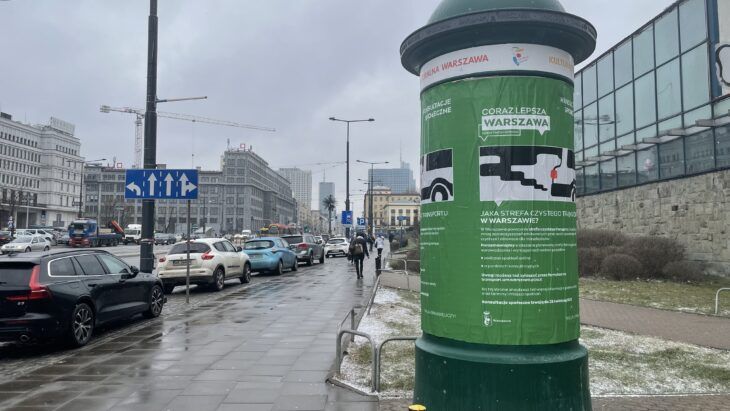
The consultations gathered three thousand diverse opinions, reflecting the community’s perspectives. Subsequently, a survey conducted in March and April 2023, commissioned by the city hall and based on a representative group of 1,020 Warsaw residents, revealed that nearly 70% of adult residents (including 66% of regular car drivers) support the introduction of the LEZ.
Following the consultations (report available on um.warszawa.pl), it was decided to conduct additional analysis to expand the zone. Ricardo, an environmental consultancy specialising in the transport agenda, conducted an economic and health impact assessment, along with preparing annual mean concentration maps for this analysis.
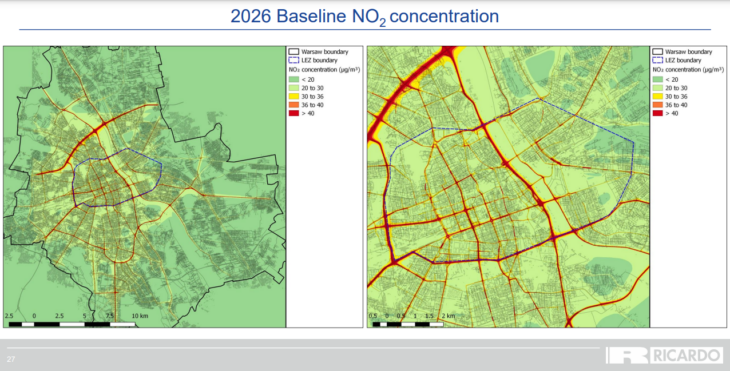
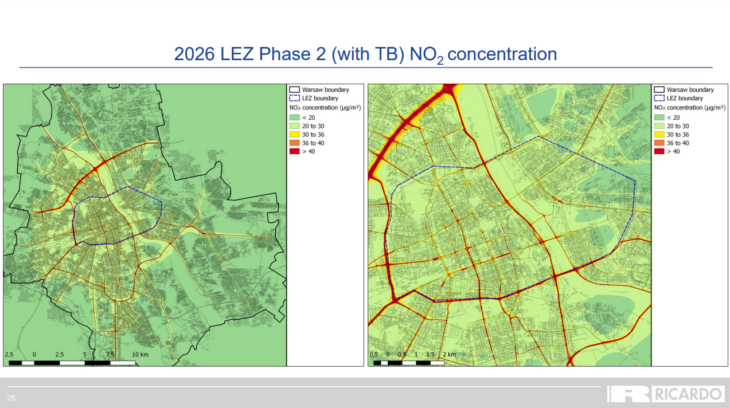
As a result of the consultations, Warsaw initially proposed a larger LEZ in autumn 2023. However, ultimately, councillors approved a smaller zone with larger exceptions for individuals registered and paying taxes in Warsaw.
- By the end of 2027, under the rules in force in the low emission zone, exemptions will apply to all individuals paying tax and registered in the capital. The LEZ regulations will apply to them from January 2028 – at that time, they will not be allowed to move within the zone with a diesel vehicle older than 13 years or a petrol vehicle older than 22 years.
- Other individuals starting from July 2024 will not be allowed to drive within the zone with a diesel vehicle older than 18 years or a petrol vehicle older than 27 years.
- Seniors (turning 70 by the end of 2023) owning vehicles before the LEZ resolution are indefinitely exempt after meeting specific conditions. The LEZ rules will not apply to owners of vintage cars as well.
The LEZ proposal received approval from the Warsaw City Council on the 7 December 2023.
With the introduction of the low emission zone, Warsaw is aligning itself with a global trend initiated by mayors worldwide. Recently, Poland established its first low emission zone in Kraków. This introduction of the LEZ represents the initial stage of a comprehensive series of vital clean air initiatives, designed to improve the health of Warsaw’s residents and reduce climate-damaging emissions in the city.
